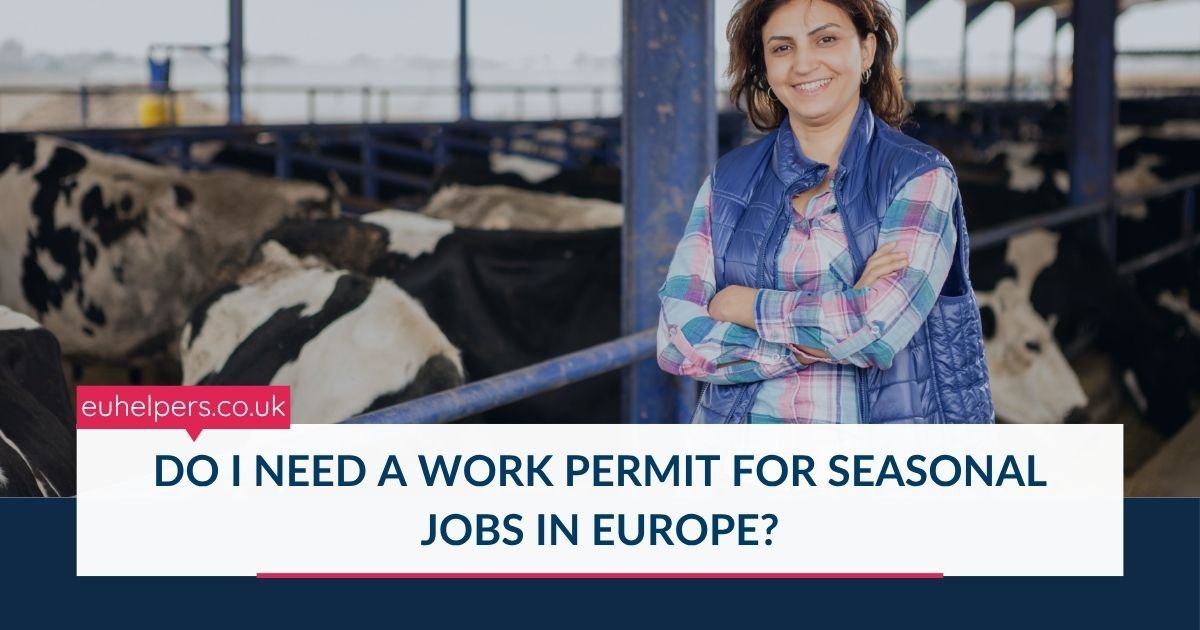
Europe offers thousands of seasonal job opportunities every year — especially in agriculture, hospitality, logistics, and tourism. Many international workers travel to Europe for short-term employment to earn, gain experience, and explore life abroad.
However, before applying, it’s essential to understand whether you need a work permit or visa for seasonal work in Europe. The rules differ depending on your nationality and the country you want to work in.
Who Needs a Work Permit for Seasonal Jobs in Europe?
If you are a non-EU or non-EEA citizen, you must apply for a seasonal work permit or visa before starting employment in any European country.
A seasonal work permit is an official document that allows you to:
-
Work legally for a specific employer
-
Stay in the country for a limited time (usually 3–9 months)
-
Perform seasonal or short-term jobs tied to specific industries
If you are a citizen of an EU or EEA country, you can work freely across the European Union without a work permitunder the freedom of movement rules.
How Seasonal Work Permits Differ by Country
Each European country has its own rules for issuing seasonal work permits.
Here’s an overview of how it works across popular destinations:
-
Poland: Seasonal permits last up to 6 months in a 12-month period. Employers apply for the permit on behalf of the worker.
-
Italy: Seasonal visas allow up to 9 months of work per year in agriculture or tourism.
-
Germany: Seasonal jobs last up to 90 days (short-term) or 6 months (with social insurance).
-
France: Seasonal workers can stay for up to 6 months per year.
-
Croatia & Lithuania: Seasonal work periods usually range from 3 to 6 months, depending on employer needs.
Your employer or recruitment agency will guide you through the correct application process for each country.
Documents Required for a Seasonal Work Permit
While the requirements vary, most European countries ask for the following documents:
-
Valid passport
-
Job offer or employment contract
-
Completed work permit/visa application form
-
Medical insurance
-
Accommodation proof (often arranged by the employer)
-
Police clearance certificate
At EUHelpers.co.uk, our team assists job seekers in preparing and submitting the right documentation for verified seasonal jobs across Europe.
Can I Extend a Seasonal Work Permit in Europe?
In some countries, you can extend your permit if you continue working with the same employer. For instance, in Poland or Lithuania, workers may apply for a Temporary Residence Card (TRC) to stay longer.
However, extensions depend entirely on national immigration laws and employer sponsorship.
Benefits of Working Legally with a Permit
Having a valid work permit gives you:
-
Legal protection and fair working conditions
-
Eligibility for benefits such as housing or insurance
-
Proof of legitimate employment for future visa applications
-
Peace of mind knowing your job is compliant with EU laws
Working without a valid permit can result in deportation or fines — so always confirm your documentation before starting work.
Conclusion
Yes — if you are a non-EU citizen, you will need a work permit for seasonal jobs in Europe. It’s a simple process when handled through verified employers or licensed agencies like EUHelpers.co.uk.
Our platform connects you with trusted European employers, provides visa assistance, and ensures that every job offer is 100% legal and transparent.
Visit EUHelpers.co.uk to explore verified seasonal job opportunities and start your European journey safely and confidently.
